Electricity & Magnetism Experiments
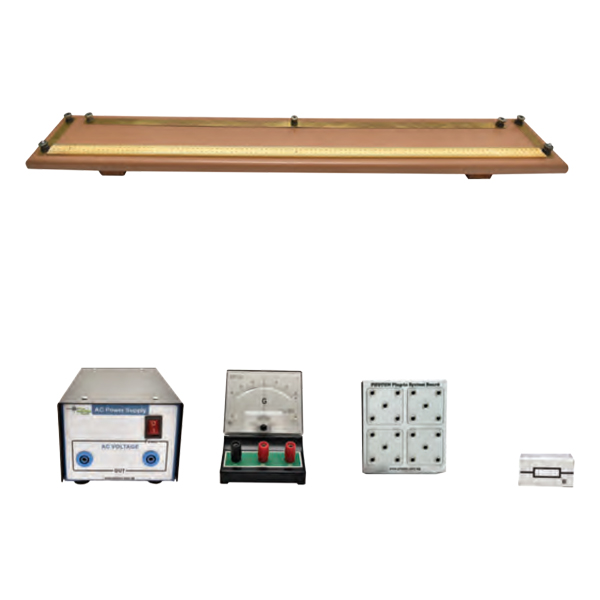
Meter Bridge
The meter bridge is a practical application of Wheatstone’s bridge used to determine an unknown resistance by using a known resistance and a balanced condition.
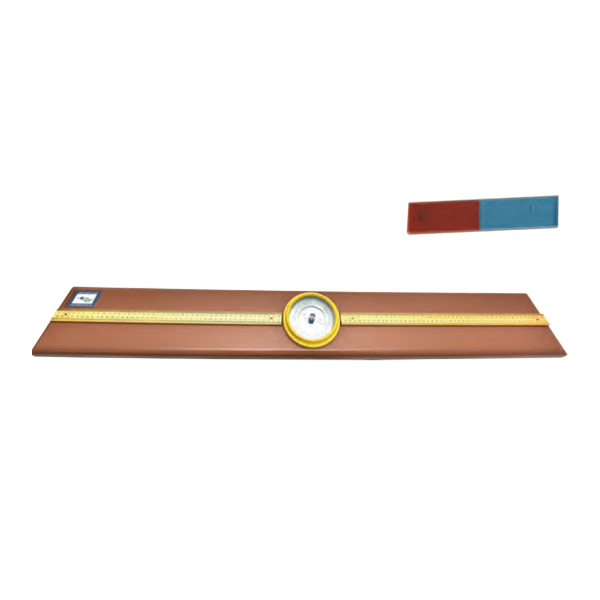
Magnetic Moment
This experiment investigates the magnetic field (F) along the axis of a bar magnet, based on the assumption of the inverse square law of magnetism.
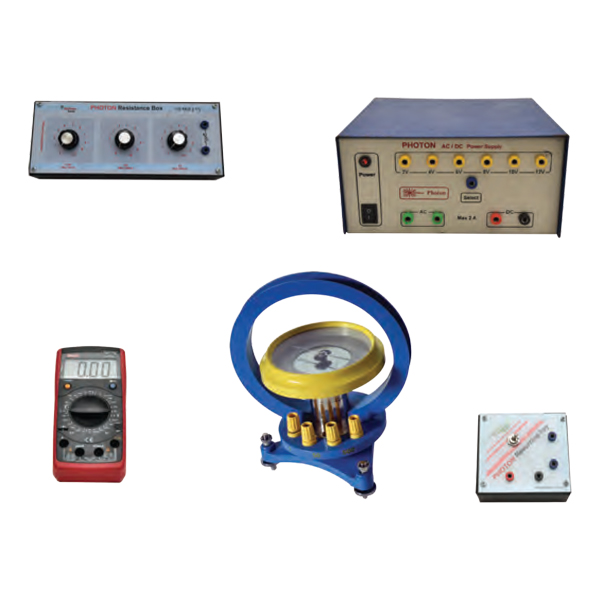
Magnetic Field Strength by Tangent Galvanometer
This experiment uses a tangent galvanometer to measure the magnetic field produced by a current in a coil (Bc).
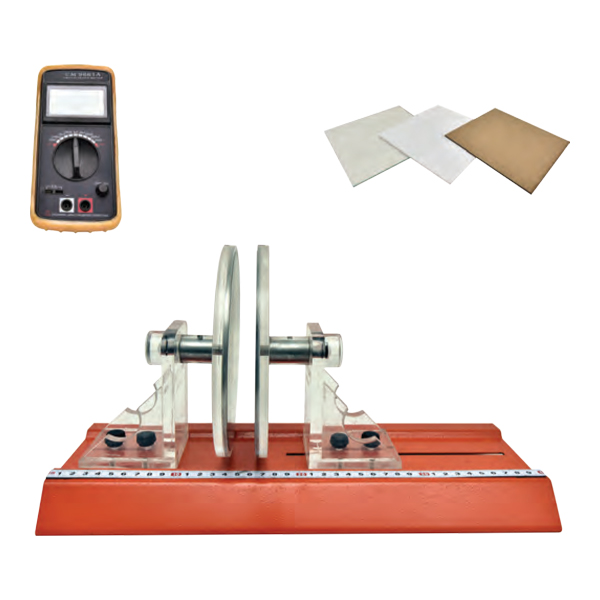
Dielectric Constant
The dielectric constant (κ), or relative permittivity (ϵᵣ), measures a material's ability to store electrical energy in an electric field.
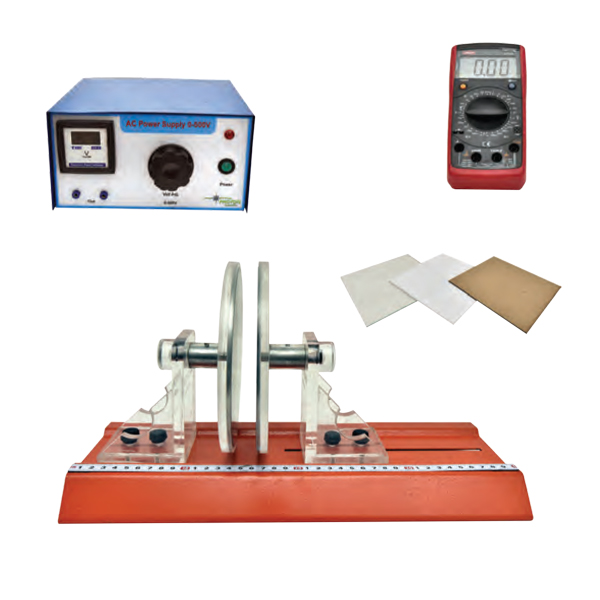
Dielectric Constant by Using a Capacitance Meter
This experiment determines the dielectric constant using a capacitance meter, providing a more precise measurement compared to manual methods.
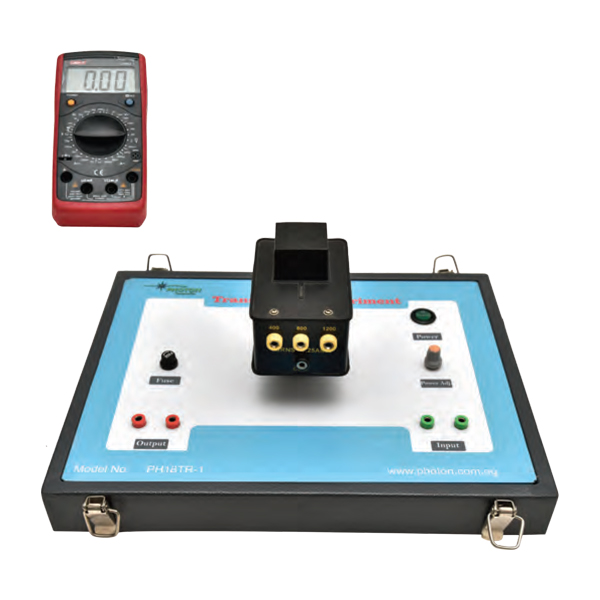
Transformers
A transformer transfers electrical energy between circuits through electromagnetic induction.
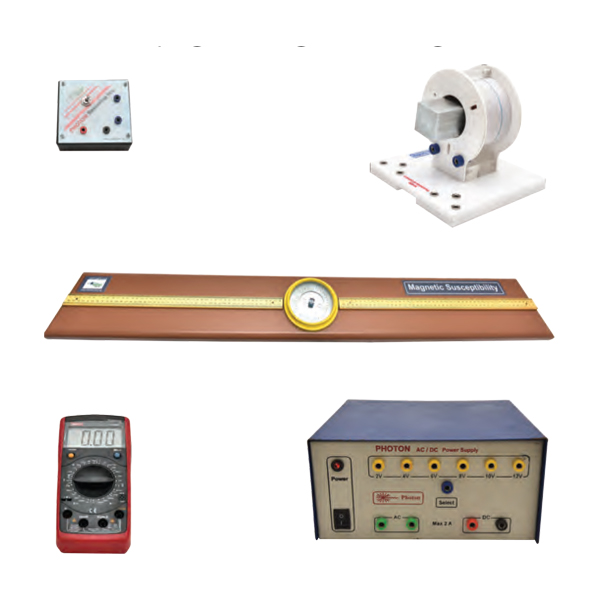
Magnetic Susceptibility
The magnetic susceptibility is the degree of magnetization of a material in response to an applied magnetic field
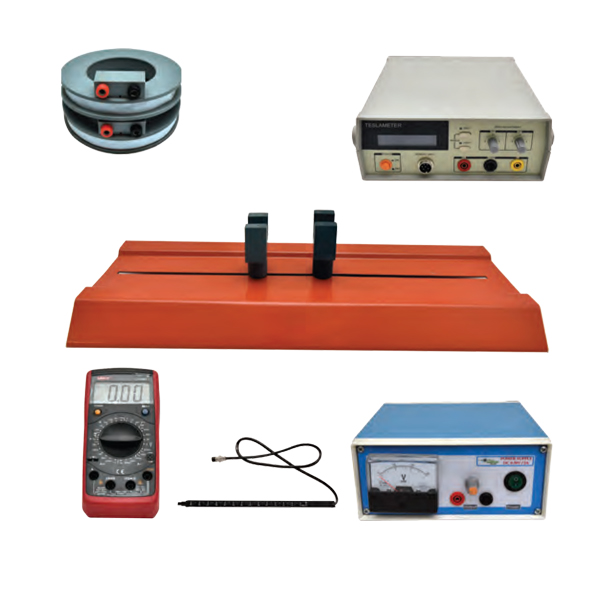
Magnetic Flux Distribution (Helmholtz Arrangement)
This experiment analyzes uniform magnetic field generation using Helmholtz coils
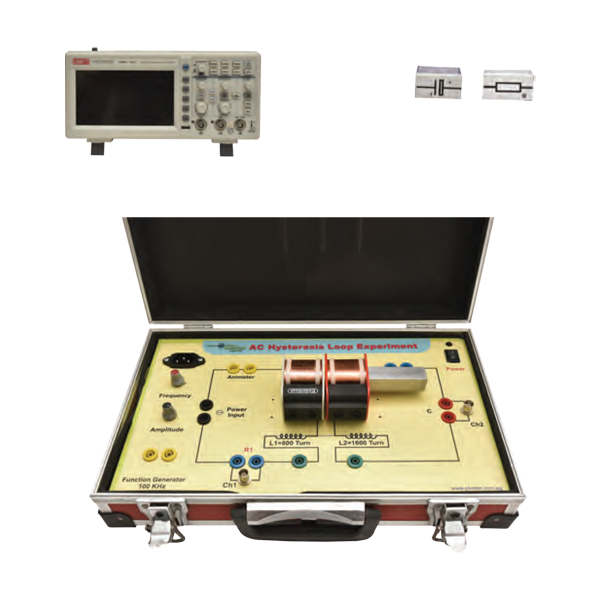
AC Hysteresis Loop
This experiment studies energy loss due to magnetization reversal in ferromagnetic materials, forming a hysteresis loop.
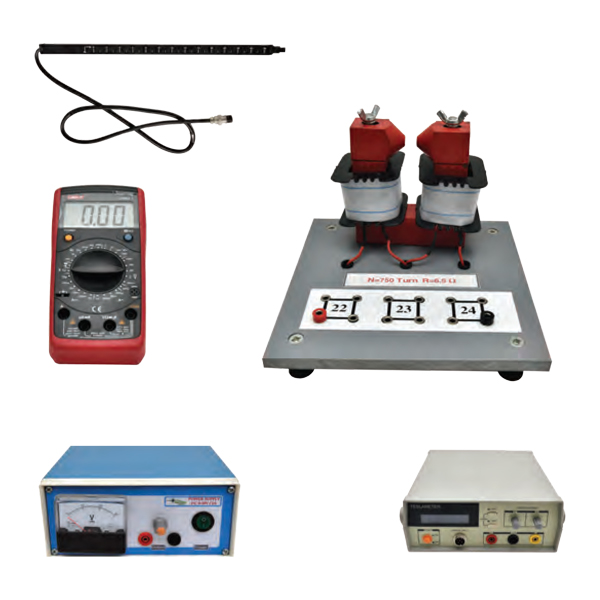
DC Hysteresis Loop
Overview Similar to AC, this examines magnetization effects under direct current conditions.
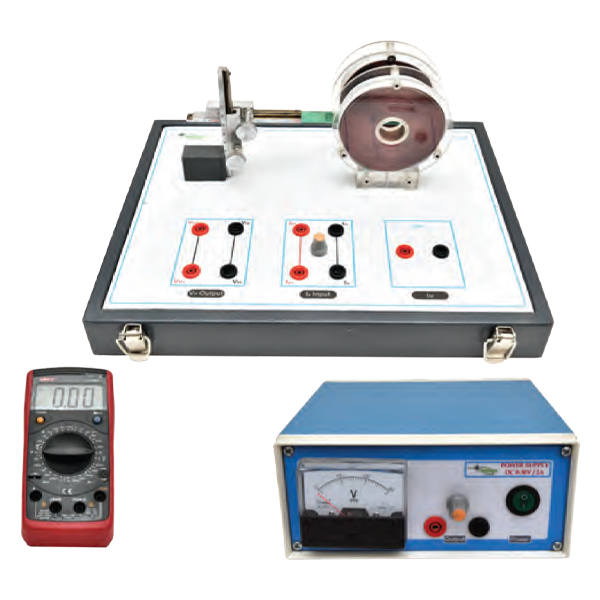
Hall Effect
The Hall Effect occurs when a current-carrying conductor is placed in a magnetic field, causing a transverse voltage (Hall voltage) due to the deflection of charge carriers by the Lorentz force.
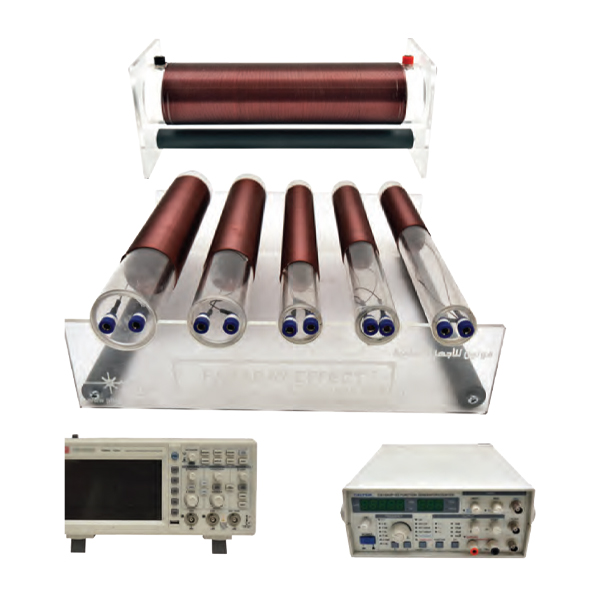
Faraday Effect (Induction in Coils)
This experiment explores the relationship between induced voltage (U) and key factors like the coil area (A), the number of turns (N1), and the frequency of the excitation field.
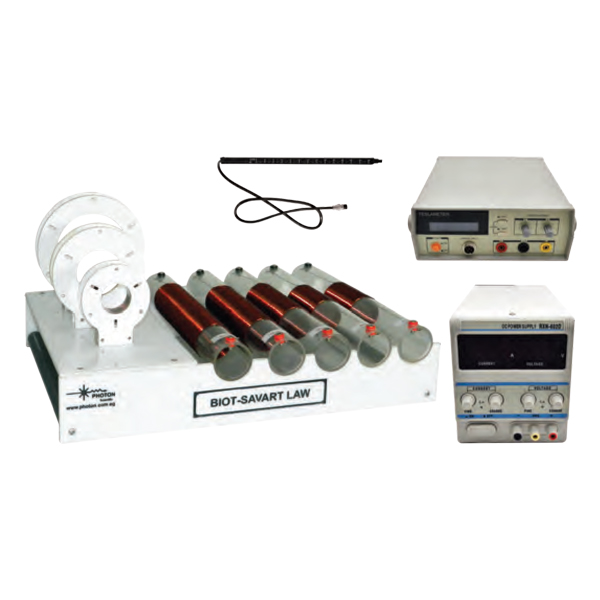
Bio-Savart Law Experiment
The Biot-Savart law calculates the magnetic field from a current-carrying wire
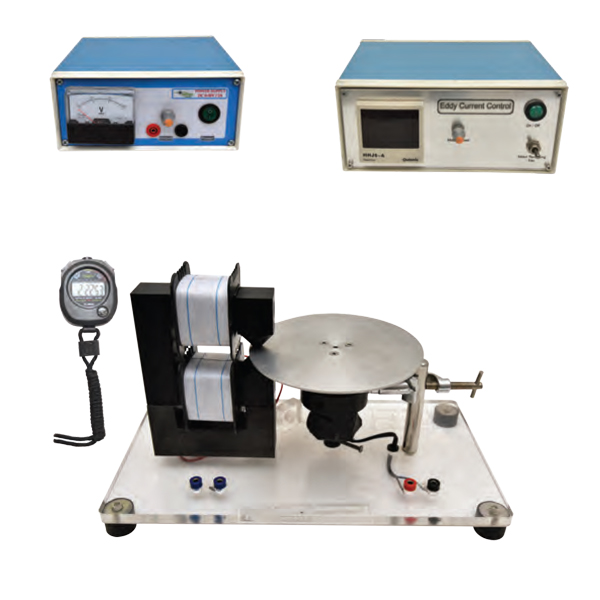
Eddy Current
Eddy currents are induced currents in conductors caused by a changing magnetic field, flowing in loops perpendicular to the field.
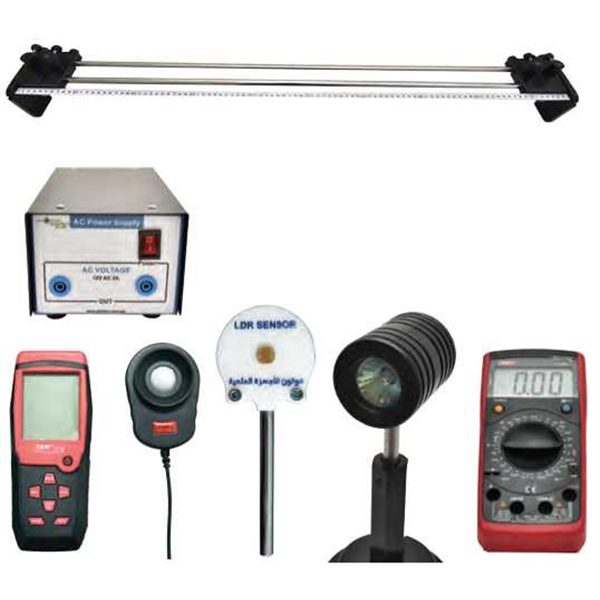
Measuring the Light Dependency of Photo Resistors
This experiment explores the relationship between induced voltage (U) and key factors like the coil area (A), the number of turns (N1), and the frequency of the excitation field.
